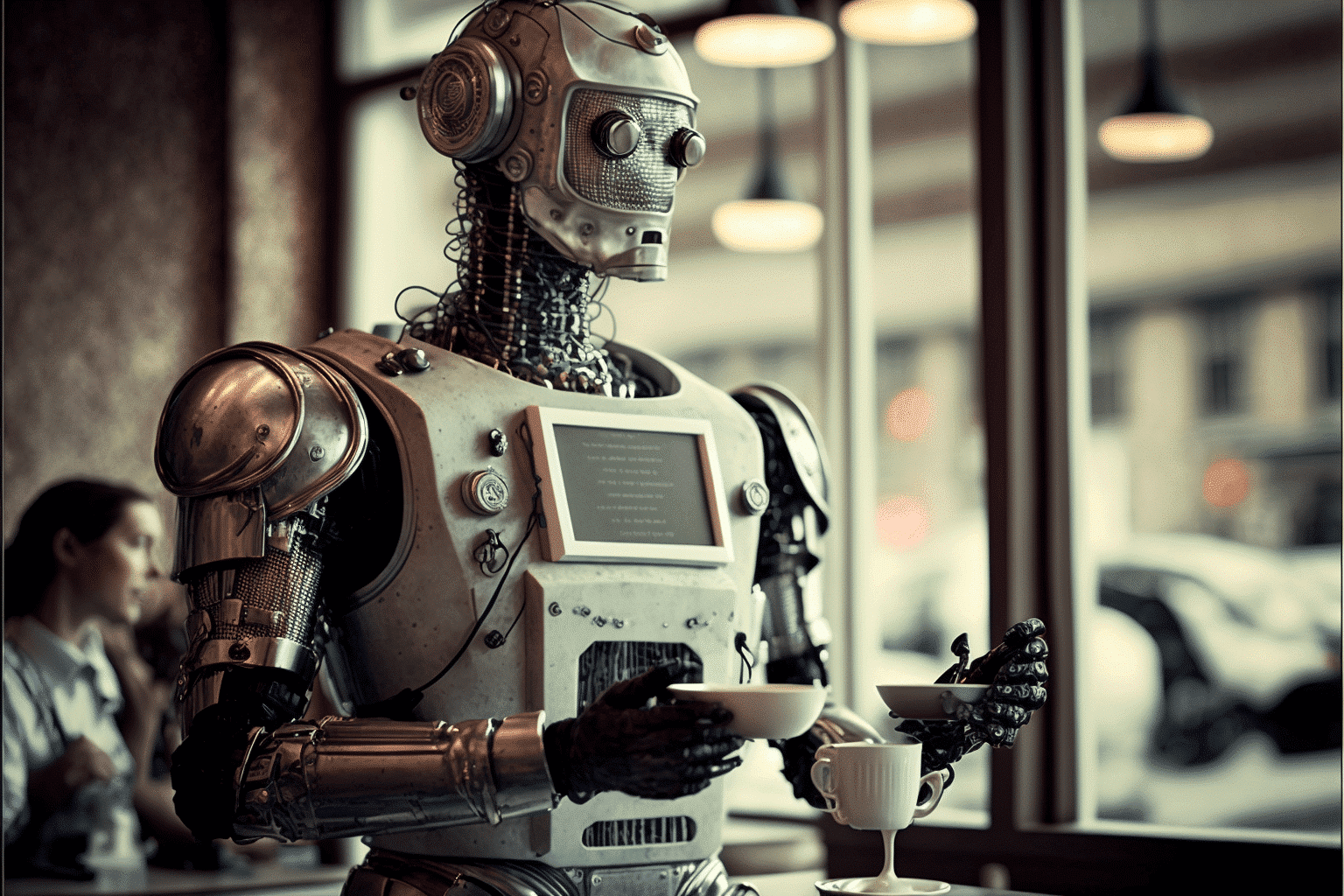A Japanese cafe in Tokyo is making waves by hiring paralyzed individuals to control robot servers. The unique concept is giving disabled people the opportunity to earn wages and interact with others through the use of robots. The pilot scheme, which is taking place at Dawn Ver cafe, involves approximately ten individuals with restricted movements and has already been praised for its innovative approach to employment for the disabled community.
Robots as Caregivers: The OriHime-D Project
The OriHime-D Project is a groundbreaking initiative that harnesses the power of technology to improve the lives of disabled individuals with restricted movements. The robots involved in the project, called OriHime-D, were developed by the Japanese start-up Ory with the goal of providing a new way for disabled individuals to connect with the outside world.
Through the use of eye movements, disabled individuals can control the robots and carry out tasks such as moving, observing, talking to customers, and carrying things. This allows them to participate in society and interact with others, despite their physical limitations. The pilot scheme is testing the connection between disabled individuals and robots, with the goal of improving the quality of life for housebound individuals.
The robot controllers involved in the project have a range of conditions, including spinal cord injuries and ALS, but are still able to provide valuable service and interact with customers at the cafe. By using their avatars, disabled individuals are able to reflect their personalities and engage with customers, earning a wage and gaining independence through technology.
A Busy Robot Staff
The cafe has a busy robot staff, including a robot that greets customers, helps find a seat, tells about daily specials, and takes orders. The Tele-Barista is a humanoid coffee artist in the cafe, expertly guiding customers through coffee options and providing a unique experience. The robots carry iPads for customers to connect with the person piloting the avatar, providing a new form of social interaction. The pilots can even change the avatar’s eye color to reflect their mood or match it to their favorite sports team, allowing them to reflect their personalities through their avatars.
Providing Opportunity for the Disability Community
The OriHime-D Project is a vital step towards providing more opportunities for the disability community in Japan. With over 7% of the population living with a disability, there is a large pool of potential employees for businesses like Dawn Ver cafe. This project offers a new way to work and socialize.
The cafe provides disabled individuals with the chance to earn a wage and gain independence through technology, giving them a sense of purpose and fulfillment. By employing disabled individuals, the project helps to challenge the societal stigma surrounding disability and highlights the value and contributions that disabled individuals can make to the workforce.
The project also serves as a model for other businesses to follow, demonstrating the positive impact that can be achieved by including and valuing the contributions of the disability community. This, in turn, can help to promote greater acceptance and understanding of disabilities and create a more inclusive and diverse society.
Inspiration from Personal Experience
Kentaro Yoshifuji is the co-founder and CEO of Ory Laboratory and was inspired to start the project after experiencing first-hand the challenges faced by people with disabilities. He was hospitalized multiple times during high school and missed school for a long time, giving him a unique perspective on the limitations faced by people with restricted movements. This experience inspired him to study robotics and use technology to ease the lives of people unable to participate in the normal social sphere.
The cafe, which opened permanently in June 2021, is already receiving positive feedback for its innovative approach to employment for disabled individuals. The pilot scheme is providing valuable insights into the connection between disabled people and robots, with the ultimate goal of improving the quality of life for people with disabilities. The project serves as an example of how technology can be used to revolutionize the lives of people with disabilities and provide new opportunities for employment and social interaction.




